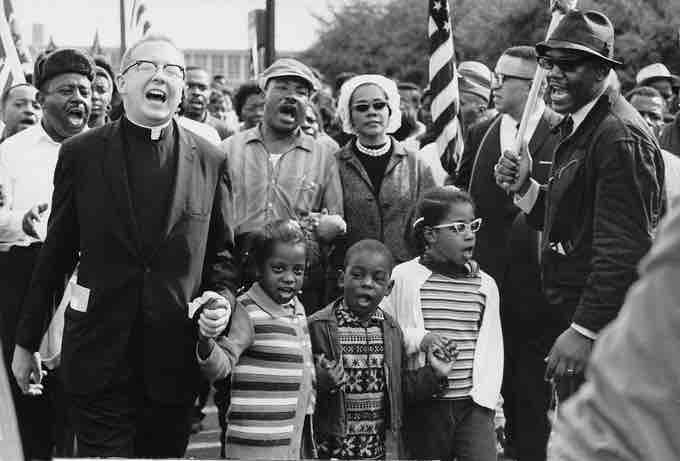Right to Petition
The Petition Clause in the First Amendment states, "Congress shall make no law… abridging … the right of the people… to petition the government for a redress of grievances. " The Petition Clause prohibits Congress from restricting the people's right to appeal to government in favor of or against policies that affect them or about which they feel strongly, including the right to gather signatures in support of a cause and to lobby legislative bodies for or against legislation. A simplified definition of the right to petition is: the right to present requests to the government without punishment or reprisal.
Petition can be used to describe, "any nonviolent, legal means of encouraging or disapproving government action, whether directed to the judicial, executive, or legislative branch. Lobbying, letter-writing, e-mail campaigns, testifying before tribunals, filing lawsuits, supporting referenda, collecting signatures for ballot initiatives, peaceful protests and picketing: all public articulation of issues, complaints and interests designed to spur government action qualifies under the petition clause."
The right to petition grants people not only the freedom to stand up and speak out against injustices they feel are occurring, but also grants the power to help change those injustices. It is important to note that in response to a petition from a citizen or citizens, the government is not required to actually respond to or address the issue. Under the Petition Clause, the government is only required to provide a way for citizens to petition, and a method in which they will receive the petition.
Limiting the Right to Petition
In the past, Congress has directly limited the right to petition. During the 1790s, Congress passed the Alien and Sedition Acts, punishing opponents of the Federalist Party; the Supreme Court never ruled on the matter. In 1835, the House of Representatives adopted the Gag Rule, barring abolitionist petitions calling for the end of slavery. The Supreme Court did not hear a case related to the rule, which was abolished in 1844. During World War I, individuals petitioning for the repeal of sedition and espionage laws were punished—again, the Supreme Court did not rule on the matter.
Freedom of Assembly and Association
Freedom of Assembly, sometimes used interchangeably with the freedom of association, is the individual right to come together and collectively express, promote, pursue, and defend common interests . The right to freedom of association is recognized as a human and political right, and a civil liberty. Freedom of assembly and freedom of association may be used to distinguish between the freedom to assemble in public places and the freedom of joining an association, but both are recognized as rights under the First Amendment's provision on freedom of assembly.

Civil Rights Movement
The right to assembly protects citizens' rights to gather together to peacefully protest. This right was frequently exercised during the Civil Rights Movement (depicted here).
Freedom of Assembly and Right to Petition
The right of assembly was originally distinguished from the right to petition. In United States v. Cruikshank (1875), the Supreme Court held that "the right of the people peaceably to assemble for the purpose of petitioning Congress for a redress of grievances, or for anything else connected with the powers or duties of the National Government, is an attribute of national citizenship, and, as such, under protection of, and guaranteed by, the United States. " Justice Waite's opinion for the Court carefully distinguished the right to peaceably assemble as a secondary right, while the right to petition was labeled to be a primary right. Later cases, however, paid less attention to these distinctions. The right to petition is generally concerned with expression directed to the government seeking redress of a grievance, while the right to assemble is speaking more so to the right of Americans to gather together.